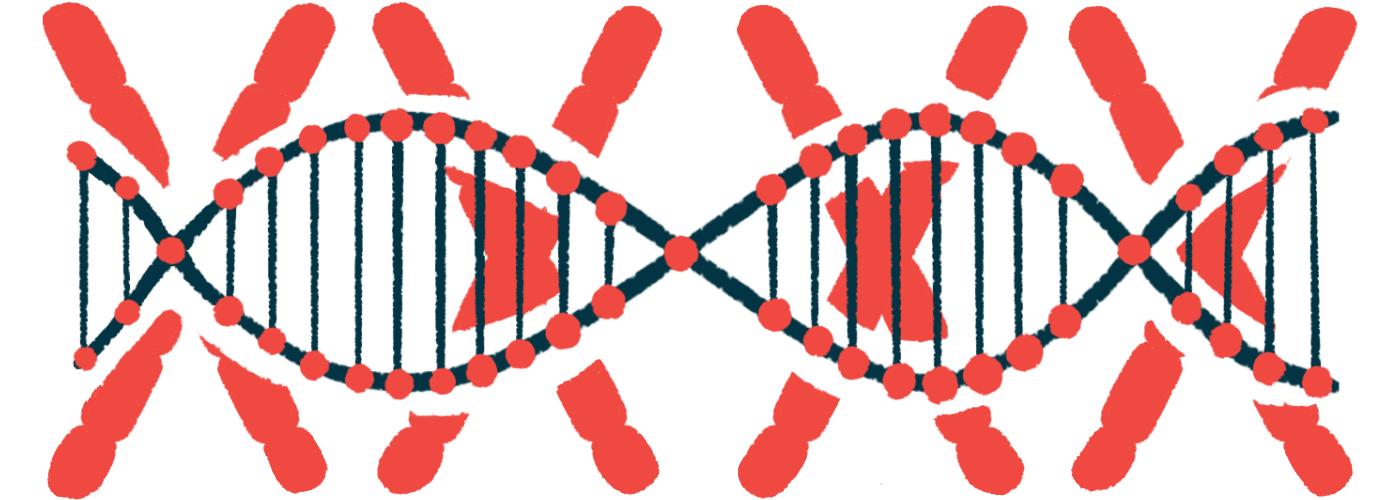Rare genetic rearrangements in aHUS patients assessed in study
Structural variations in CFH-CFHR genome region linked to disease manifestations
Written by |

A substantial number of people with atypical hemolytic uremic syndrome (aHUS) carry rare structural variations in a part of the genome called the CFH-CFHR region and some variants are linked to certain disease manifestations, a recent study reports.
“This work highlights the association between aHUS and genomic rearrangements in the CFH-CFHR region and describes both known genomic alterations and new large aberrations,” the researchers wrote. “These structural variants have a different impact on risk of disease manifestation, age of onset, and severity.”
The findings were reported in the study, “CFH and CFHR structural variants in atypical Hemolytic Uremic Syndrome: Prevalence, genomic characterization and impact on outcome,” which was published in Frontiers in Immunology.
While genetic mutations don’t cause aHUS outright, many people with the disease harbor mutations that are thought to predispose them to the disease. Most of them are in genes that aid immune function regulation.
Among the genes linked to aHUS are CFH and the CFHR genes (CFHR1 through CFHR5), which help regulate the complement cascade — a part of the immune system that has a central role in aHUS. These six genes are all located near each other on chromosome 1 and they share a similar genetic sequence.
Due to their physical proximity and sequence similarity, it’s relatively common for there to be structural variations in the CFH-CFHR region — that is, large sections of DNA that get deleted, duplicated, or rearranged.
“However, data on the prevalence of CFH-CFHR genomic rearrangements in primary and secondary aHUS, their impact on disease penetrance, disease onset, response to therapy and outcome are limited to case reports or case-series,” the researchers wrote. Secondary aHUS refers to a form of the disease that develops in the setting of another illness, such as an autoimmune disorder or cancer, or being exposed to certain medications.
Variants in the CFH-CFHR region
In this study, scientists in Italy analyzed data from 258 people with primary aHUS, as well as 92 people with secondary aHUS to assess how these variations might affect aHUS.
Common structural variants in the CFH-CFHR region, which are frequently found in the general population, were identified in about half the patients.
Also, 22 patients — 20 with primary aHUS and two with secondary disease — were found to carry rare or previously-unreported rearrangements in this region. In most of these patients, the rearrangement involved the CFH gene; in six the rearrangements only affected the CFHR genes.
Among the 20 primary aHUS patients with rare variations, those with rearrangements in the CFHR genes tended to have milder disease than those with rearrangements involving CFH, analyses showed. These patients were more likely to achieve disease remission without treatment with Soliris (eculizumab), for example.
“Our data also show relevant associations between the specific [genetic structural variants] and disease [characteristics], response to therapies and risk of recurrence after kidney transplant,” the researchers wrote.
Also, patients with CFHR-only rearrangements more commonly had other co-occurring mutations in complement-related genes and tended to be slightly younger at the onset of their disease.
Analyses of genetic data from patients and their biological families showed that most of these variants were also found in people who didn’t have aHUS, demonstrating that these variants alone are insufficient to cause the disease, which is similar to what’s been shown for other aHUS-related mutations.
For most patients with available data, aHUS was initially triggered as part of an infection.
The data highlight that rare variations in the CFH-CFHR region may contribute to aHUS in some cases. The researchers called for more efforts to identify these variants and characterize their potential clinical consequences.
“Our data definitely support including a CFH-CFHR [structural variant] search in routine genetic analysis for patients with aHUS to improve prognosis and treatment approaches,” they wrote.






